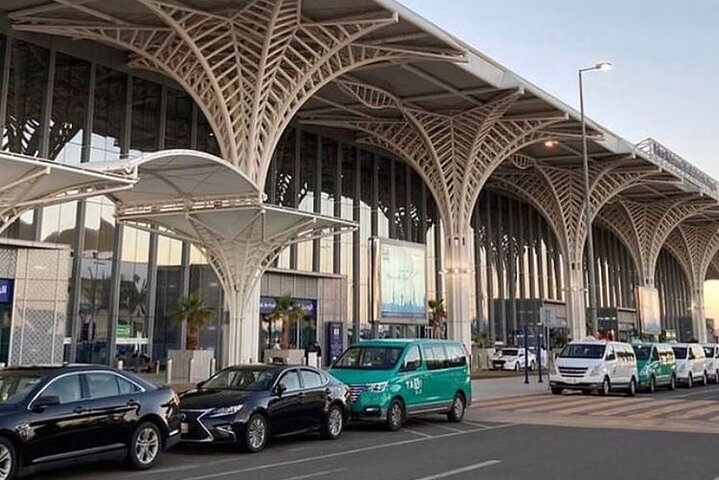In recent years, a new trend has emerged in pilgrimage travel to Saudi Arabia: the use of specialized “Umrah taxi” to facilitate the journey of pilgrims visiting the holy cities of Mecca and Medina. This innovative approach to transportation has transformed the landscape of pilgrimage logistics, offering convenience, flexibility, and a personalized experience for travelers. In this article, we’ll explore the concept of Umrah taxis, their impact on pilgrimage journeys, and the broader implications for the travel industry.
What Are Umrah Taxis?
Umrah taxis are a form of private transportation service tailored specifically for pilgrims embarking on the Umrah pilgrimage. Unlike traditional modes of transport, such as buses or rental cars, Umrah taxis provide a more personalized and hassle-free experience for pilgrims. These taxis are equipped to accommodate the unique needs of Umrah travelers, offering direct transportation between key pilgrimage sites and hotels, as well as facilitating visits to religious landmarks.
The concept of Umrah taxis emerged as a response to the growing demand for tailored transportation services during the Umrah season, which sees millions of pilgrims flocking to Saudi Arabia each year. Pilgrims often prefer the convenience and comfort of a dedicated taxi service, especially when navigating busy pilgrimage sites and managing multiple religious rituals within a short timeframe.
How Umrah Taxis Operate
Umrah taxi services operate similarly to regular taxis but are specialized to cater to the specific requirements of Umrah pilgrims. These services can be booked in advance through online platforms or travel agencies, allowing travelers to secure reliable transportation options well before their departure. Upon arrival in Saudi Arabia, pilgrims are greeted by their designated taxi drivers, who are often fluent in multiple languages to better assist international travelers.
The flexibility of Umrah taxis is a key advantage for pilgrims. Unlike scheduled buses or group tours, which follow predefined itineraries, Umrah taxis offer a degree of autonomy, allowing travelers to customize their journey based on personal preferences and religious obligations. This level of flexibility is particularly valued during Umrah, where pilgrims engage in various rituals at their own pace.
Benefits of Umrah Taxis
- Convenience: Umrah taxis provide door-to-door transportation, reducing the stress associated with navigating crowded pilgrimage sites and unfamiliar surroundings.
- Flexibility: Pilgrims have the freedom to plan their pilgrimage according to their schedule, maximizing their spiritual experience without constraints.
- Comfort: Modern vehicles equipped with amenities ensure a comfortable and safe journey for travelers, especially during the rigorous Umrah season.
- Personalized Service: Umrah taxi drivers often act as guides, offering valuable insights into the religious significance of various sites and assisting with practical matters.
Impact on Pilgrimage Experience
The introduction of Umrah taxis has significantly enhanced the overall pilgrimage experience for travelers. By streamlining transportation logistics, pilgrims can focus more on the spiritual aspects of their journey, devoting their time and energy to religious rituals and reflection. The personalized nature of these services also fosters a deeper connection between pilgrims and their hosts, contributing to a sense of community and support during the sacred pilgrimage.
Moreover, Umrah taxis have contributed to the diversification of the travel industry in Saudi Arabia, encouraging innovation and entrepreneurship in service provision. The growth of specialized transportation services has stimulated economic activity, creating employment opportunities and promoting infrastructure development to support the expanding tourism sector.
Future Trends and Opportunities
Looking ahead, the popularity of Umrah taxis is expected to continue rising, driven by increased demand for tailored pilgrimage experiences and enhanced travel services. This trend underscores broader shifts in the travel industry towards personalized and experiential tourism, where consumers seek customized solutions that cater to their unique needs and preferences.
In response to this growing demand, stakeholders in the travel sector are likely to invest further in technology and infrastructure to optimize the efficiency and accessibility of Umrah taxi services. This includes the integration of digital booking platforms, GPS tracking systems, and improved communication channels to ensure seamless experiences for pilgrims.
Conclusion
The emergence of Umrah taxis represents a transformative development in pilgrimage travel, redefining traditional modes of transportation and enriching the overall experience for Umrah pilgrims. By combining convenience, flexibility, and personalized service, these specialized taxis have become an integral part of the modern pilgrimage journey, reflecting broader trends towards innovation and customization in the global travel industry. As the demand for tailored pilgrimage experiences continues to grow, the evolution of Umrah taxis underscores the enduring significance of travel in fostering cultural exchange, spiritual fulfillment, and economic development.
